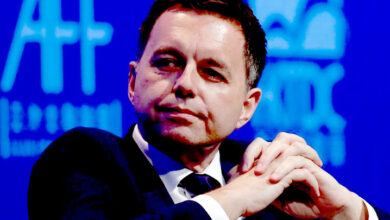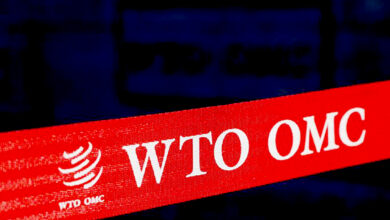Meloni and the technocrats in Italy: a challenging power balance

Giorgia Meloni, the new right-wing prime minister of Italy, has spent much of her career raging against the financial and administrative elites and now must win them over. This is proving to be a difficult task.
Following her victory in an election on September 25, things took a turn for the worse.
Three political sources told Reuters that she was rejected by outgoing minister Daniele Franco, a former Bank of Italy official, and European Central Bank board member Fabio Panetta in their search for a finance minister who would reassure markets and Italy’s European partners.
Related: Important Ministers in the New Meloni Italian Government
Meloni ultimately chose career politician Giancarlo Giorgetti of the co-ruling League party in place of choosing a “technocrat,” an unelected official with the technical know-how to implement policy.
For the position of governor of the Bank of Italy, which is chosen jointly by the government, the central bank, and the head of state, Panetta and Franco will compete next year.
Panetta declined to comment, according to an ECB official. Franco couldn’t be reached for comment. Multiple inquiries for comment to Meloni’s office went unanswered.
Alessandro Rivera, the powerful director general of the Treasury Department, is now the target of Meloni’s inner circle, according to three government officials who declined to be named because of the sensitivity of the situation. But there aren’t many workable alternatives.
Meloni, a politician with a strong conviction, has criticized Italy’s reliance on technocrats to address its economic issues and denounced alleged meddling from “high international finance” and “Brussels bureaucrats.”
However, she must find a productive method of collaborating with these influential leaders, both at home and abroad, if she is to handle Europe’s second-largest debt load and guarantee the delivery of billions of euros in European Union pandemic recovery funding.
DUTCH LYNCHPIN
Regardless of election results, the majority of Italian civil officials remain in their positions; nevertheless, new administrations have the ability to quickly replace specific department heads. Top executives with extensive experience are frequently reappointed, like Rivera, who served as Treasury Director General for three different administrations.
Meloni’s aides disapprove of Rivera’s management of some of Italy’s most important financial dossiers; he is unknown to the general public but a reference for the financial community and European leaders.
These include efforts to relaunch the fifth-largest bank in the nation, Monte Dei Paschi di Siena (MPS), which is 64% controlled by the Treasury, as well as the privatization of the national airline, ITA Airways, the successor to Alitalia.
However, he also appears to have strong adversaries in Meloni’s Brothers of Italy party, according to Francesco Galietti, head of political risk consultancy Policy Sonar and a former Treasury official. “Rivera has influential fans, especially among bankers,” said Galietti.
Rivera couldn’t be reached for comment. His future would be decided, according to a Treasury official.
Meloni unsuccessfully urged her predecessor Mario Draghi to halt the sale of the majority interest in ITA during the election campaign.
A consortium led by the American private equity group Certares was chosen by the Treasury for exclusive talks less than a month before the election, but the deal has not yet been finalized.
Now that Lufthansa, a German airline, has expressed interest once again, the strategy recommended by Rivera’s top staff would be reversed.
The Treasury’s insistence on risking the markets with a 2.5 billion euro ($2.59 billion) capital increase for Monte Paschi further incensed Meloni’s supporters. The bank’s chances have improved as a result of the share issue’s eventual success.
PUSHBACK
Meloni’s advisor Maurizio Leo, the deputy economy and finance minister, has suggested breaking his ministry by separating the finance division in charge of tax issues.
The plan, which was revealed in an interview with Reuters, was dropped in response to opposition from the ministry’s career civil officials. Fabrizia Lapecorella, the chief of the finance division, has requested a transfer to another ministry, according to two sources.
In response to a request for comment, Lapecorella remained silent.
Pasquale Tridico, the head of the state pensions agency INPS and another top economic official, is also a target for Meloni.
Related: Italian Bonds fall and Stocks Gain after Meloni Bloc Wins Majority in Elections
On Sunday, Brothers of Italy defense minister Guido Crosetto accused Tridico, who is thought to be close to the left-leaning 5-Star Movement, of opposing the government’s plans and hinted that he wouldn’t be reappointed when his term ends next year.
One of Meloni’s closest advisers told Reuters that the right planned to replace many of the senior officials in state-run businesses and ministries with members of its own party.
Some government sources predicted that Antonino Turicchi, a former senior Treasury official and deputy chairman of Monte Paschi who has historically been close to the Italian right, would succeed Rivera.
Turicchi was appointed president of the airline ITA last week, which is thought to have prevented him from applying for the Treasury job for the time being.
According to a senior official in Draghi’s previous administration, Rivera is the only person in the top tier of the Treasury who is qualified to stand alongside Finance Minister Giorgetti, who has limited international experience and a limited command of English. Rivera has extensive international connections.
Giorgetti has until the end of January to confirm or dismiss Rivera in accordance with Italian law. He assisted in preparing the government’s 2023 budget, which was unveiled on Tuesday, and accompanied the minister to the G20 summit in Bali last week, so he remains at the center of Italian policymaking until then.
($1 = 0.9650 euros)





